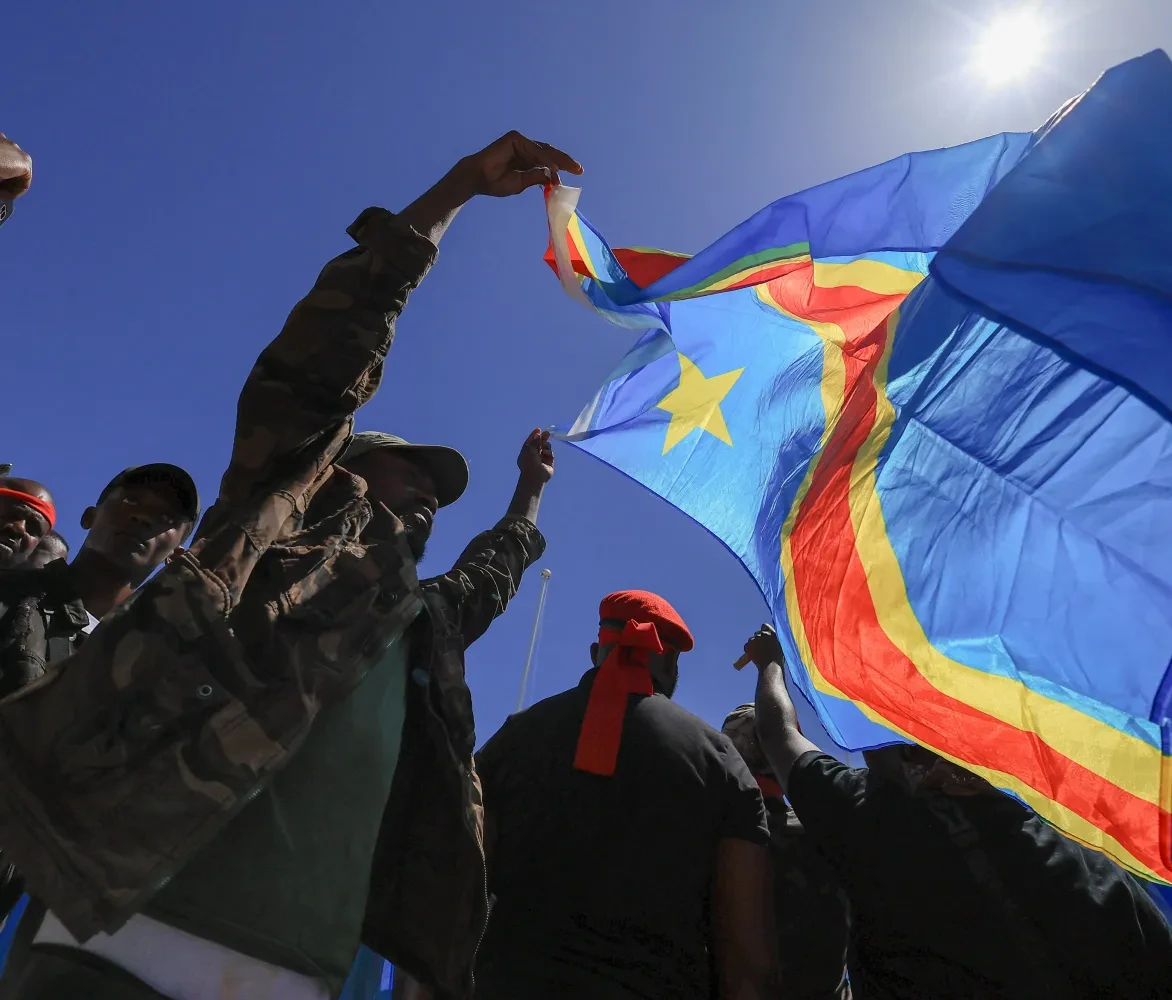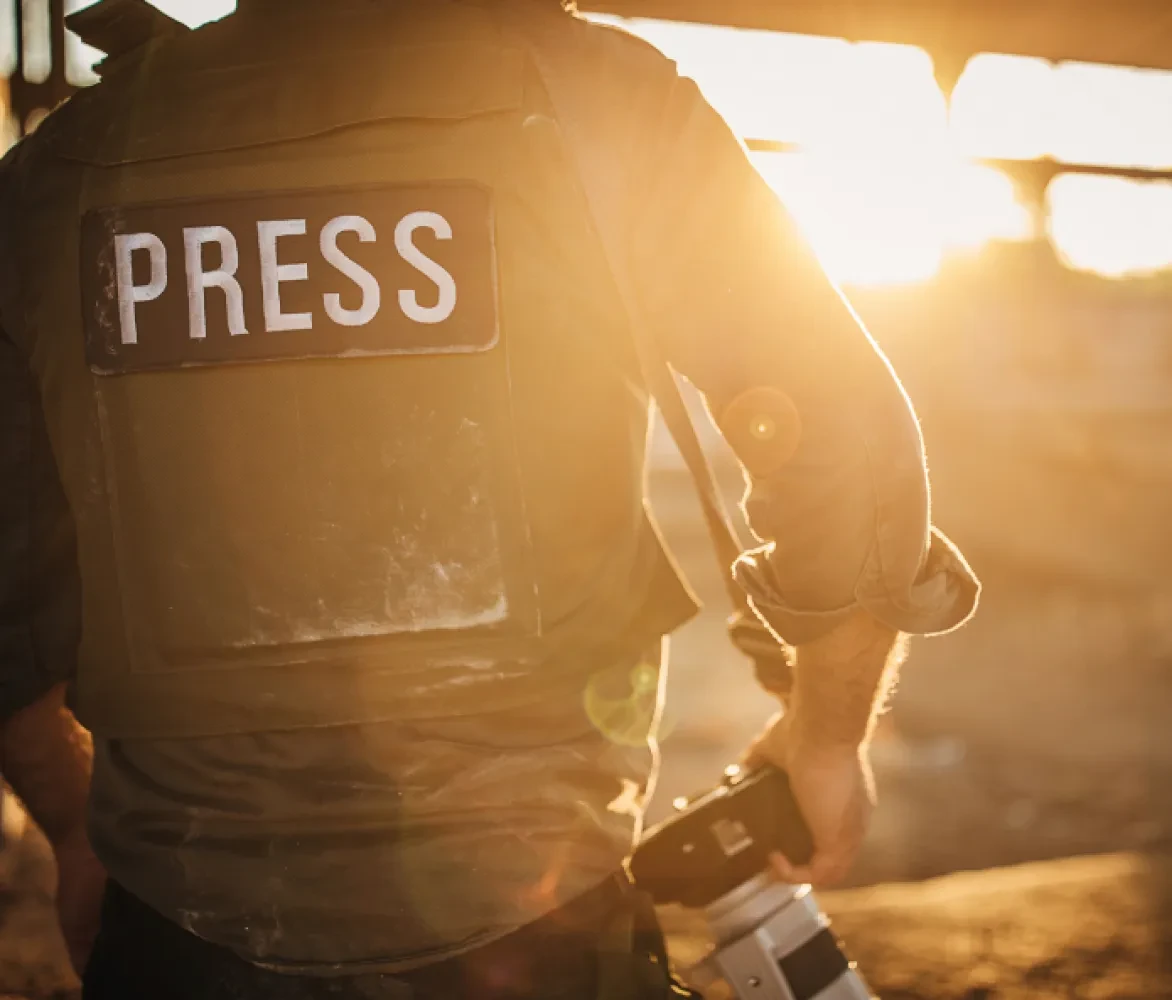A World Cycling Championship in Rwanda, while bodies are falling to the ground in eastern Congo?
Jul 22 2025
4 minutes
This opinion appeared in De Morgen on July 22, 2025
Els Hertogen, director of 11.11.11Milan Augustijns, sports journalist, Hans Vandeweghe, sports journalist and Thijs Zonneveld, sports journalist and cyclist, express their concern and indignation about Belgium's participation in the World Cycling Championships in Rwanda.
Belgian Cycling is sending Belgian cyclists to Rwanda this fall. A world road cycling championship in Rwanda, while bodies are falling to the ground in eastern Congo, people are going into hiding, and families are living in mortal fear? While that same Rwanda has severed all diplomatic ties with Belgium and is expelling human rights defenders? That's a statement. A nod, a silent approval.
Anyone who has followed this conflict for a while knows how the game is played. M23 rebels advance, with Rwandan weapons in their hands and Rwandan orders in their ears. Cities like Goma and Bukavu are reeling from the violence, and people are fleeing and dying.
Yes, peace talks have been held—a cautiously hopeful sign after thirty years of war. But that doesn't erase the crimes or violence. Impunity must never be the answer.
Reports of torture in unofficial detention centers, extrajudicial executions in the streets, and persecution of Congolese activists appear only sparsely in the foreign media. This is not a vague geopolitical issue or a gray area, but a war with clear perpetrators, masterminds, and millions of victims.
The European Parliament rightly called for sanctions and the cancellation of the World Cup. Belgian MEPs took the lead in this, a powerful signal. The federal parliament also unanimously followed suit. Foreign Minister Maxime Prévot advocated for coordinated sanctions. But without action from the European Commission, little will change. The Commission condemns the violence, but at the same time, it makes deals with Rwanda. This hypocrisy is appalling. Meanwhile, in Kigali, roads are being paved and banners are being hung, financed by war booty and blood money.
After the invasion of Ukraine, Russia became a pariah in the sports world. No Olympic flag, no tournaments. Even the cycling federation didn't bow to Putin. But in Kigali, the flags are allowed to fly. Rwanda finances and arms a rebel group that sows terror in a neighboring country, yet it is rewarded with a World Championship. Double standards.
Sport is never apolitical. Rwandan President Paul Kagame knows this better than anyone. He uses sport as a charade. A World Cup in Kigali, "Visit Rwanda" on European football shirts, a planned F1 race – all carefully staged. Not to please sports fans, but to mask reality. Because an image sells, a reputation can be sanitized, and war crimes are more easily hidden behind the scenes of glittering sporting events.
Meanwhile, how do you guarantee the safety of riders, staff, and spectators? This question is all the more pressing for Belgians. In response to public Belgian outrage over the Rwandan violence, Rwanda abruptly severed all political ties. Belgian diplomats were given 48 hours to leave Rwandan territory. The embassy remains closed to this day. Projects for healthcare, agriculture, and peace were halted. What happens when a journalist asks the wrong question in a country that no longer distinguishes between diplomacy and threat, aid worker and enemy? Or when an athlete sees more than what the regime wants to show?
Earlier this year, Gert Van Goolen of Golazo, the co-organizer of the UCI Road World Championships, dismissed criticism of Belgian involvement in the program "De afspraak" (The Appointment). "We're just a subcontractor," he said. "The money comes from the International Cycling Union, not from a dictator." Yet everyone knows who paved the way and is actually organizing this World Championship: Kagame. This race comes not only with sport and medals, but also with war, repression, and a violation of humanity.
Rwanda isn't a sideshow in Eastern Congo. It's the leader, the runner who sets the course and dictates the pace. The UN has laid bare the evidence: Rwandan weapons, Rwandan orders, Rwandan soldiers, and Rwandan control of resources. Congolese soil is being plundered. Coltan, gold, tin: raw materials that keep our economy running, make our technology possible. They exit through Rwanda, crops from their origins, traded as if they originated in a stable country. It's an open secret, but the trade continues. The world watches and does business with Kigali as if it were a well-ordered trading nation.
Congolese people are not passively watching. Protests demonstrate that citizens are resisting. They demand that the international community hold Rwanda accountable and not give a handshake to a regime that finances terror. However, the UCI, participating countries, and companies are playing along. No neutrality, no naiveté, but participation in a narrative that rewards violence.
Companies can still draw a line in the sand. The UCI can recover. Participating countries can still choose. This championship can and should be moved. Not out of diplomatic discomfort, but out of moral obligation. Cycling stands for resilience, fight, and character. It must not become a backdrop for a dictator's propaganda.
And Europe? It must take its own words seriously. A condemnation without action is as empty as a sporting event without spectators. The Commission must demonstrate that it is more than a spectator. The world has spoken out against Russia. Now is the time to hold Rwanda accountable as well.


